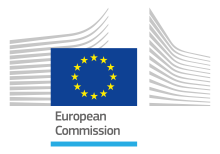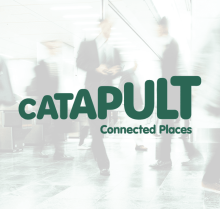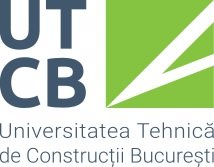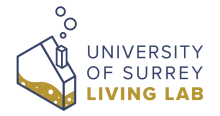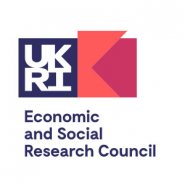
Co-creating accessible futures through new mobility services
Start date
December 2021End date
January 2023Overview
Dr Nikolas Thomopoulos and an impressive list of partners, have been awarded ESRC IAA funding for a project which will engage with the public to address the lack of a ‘citizen’s view’ in the design of new technology based mobility services.
All digital technology based mobility services tested and deployed today, from shared taxi rides and shared bicycle schemes to electric and autonomous vehicles, are considered new mobility services. They feature as a prominent solution globally to address climate change and the United Nations Sustainable Development Goals, given the high contribution of transport in Green House Gas emissions. Yet, one missing link of all these developments has been the citizens’ view.
The WISE-ACT (Wider Impacts and Scenario Evaluation of Autonomous and Connected Transport) international survey distributed in more than 20 countries within Europe and beyond, collected more than 4,000 responses and a critical finding which led the European Commission to reconsider its approach to new mobility services has been the low acceptance level from the general public, particularly within certain localities.
According to ScienceWise, a UK Government initiative which currently includes Future of Mobility in their priority themes, policies which do not take citizen and user views into account, can be hard to implement, costly to amend and have negative social impacts.
There is sustained uncertainty regarding the uptake of shared mobility services for leisure or commuting journeys and the respective impact on congestion, which has been further exacerbated during the COVID-19 pandemic.
Experts feel that a holistic approach where citizens have a core role is essential given that new mobility services are technologically complex and challenge a series of established social norms and practices for users and businesses.
This need for a new approach will be addressed through an ESRC IAA funded project, allowing local citizens to voice and visualise their concerns. By co-creating an approach with local experts and stakeholders the team will adjust large scale survey findings to make them relevant for local communities in the UK including marginalised socio-economic groups such as disabled, aged, single-parents and those affected by the digital divide.
Team
Principal investigator

Dr Nikolas Thomopoulos
Associate Professor in Transport
Biography
Dr Nikolas Thomopoulos is an Associate Professor in Transport, co-leading the Sustainable Transport & Mobility Programme of the Institute for Sustainability at the University of Surrey. His research interests include new mobility services and their user-centred evaluation to benefit businesses and society.
He is regularly invited to speak about transport and travel and previously he was an academic visitor at the Joint Research Centre of the European Commission, the Chair of a RSA Research Network on 'smart' and 'green' regional growth, a contributor to the planning of the Surrey MaaS project and a member of UK academic missions to Brazil and China. In addition to being an evaluator of funding proposals, a member of Technical Programme Committees of large conferences, he has delivered keynote presentations at conferences, hosted international workshops, co-edited books and special issues about ICT for transport, urban mobility futures and Automated Vehicles. He was the Principal Investigator of the University of Surrey Living Lab leading a project focusing on Active Travel, a UK representative at the Global Digital Human Rights Network and the elected Chair of WISE-ACT (Wider Impacts and Scenario Evaluation of Autonomous and Connected Transport), a research network of 200 experts in 42 countries. In 2024 he was elected as a WG Leader of BOPALiM (2024-2028) and in 2025 he was invited as a Visiting Scholar (2025-2028) to offer his research and teaching expertise at the University of Ljubljana. His current research activities (R-Map 2024-2027) evaluate the effects of remote work on transport and society.
Having more than 20 years teaching experience at both undergraduate and postgraduate levels has contributed in understanding the needs to enhance the learning experience of home and overseas students. He has successfully supervised MSc and PhD dissertations, whilst he has delivered guest lectures at LSE, UCL, UPV and Westminster, including the delivery of executive education courses to British Government officials and to executives in Vietnam.
Before joining Surrey, he was a researcher at the London School of Economics and Political Science and at the Institute for Transport Studies of the University of Leeds, where he was also a Marie Curie fellow. He studied economics at the University of Macedonia in Greece, then completed his MSc at the University of Oxford and subsequently acquired his PhD from the University of Leeds. Following his studies in Greece, Germany and the UK he has contributed in a range of FP-6, FP-7, H2020, Horizon Europe funded research projects and has advised start-ups as an independent business consultant. In the build-up to COP-21 he co-ordinated research within the New Climate Economy project which was funded by national governments, and collaborated with established academics and practitioners across the globe. In 2015 he was an advisor for the Best Conceptual Project of the London Planning Awards. His research and consultancy outputs at Surrey contribute in making local, national and international impact.
Postgraduate researcher

Dr Sadhana Jagannath
Visiting Researcher
Biography
My research focuses on the psychology of the built environment. I particularly examine the intersection between the architectural design of the built environment and its influence and impacts on people's transactions with it.
I completed my PhD in 2023 at Surrey focusing on residential environments. I examined the effect of flexible home designs, and residents' behaviours of making changes to their homes, on their wellbeing. I worked as a postdoctoral research fellow at the University of Stirling on the Designing homes for Healthy Cognitive Ageing (DesHCA) project (2023-2024) and currently hold a research associate in human-centred design at Imperial College London (2024) looking at pro-environmental behaviour intervention in Operating theatres at the Imperial NHS Trust.
As a visiting researcher, I contribute to the research and teaching activities at the Environmental Psychology Research Group (EPRG) at the University of Surrey.
Outputs
Opportunities and challenges surrounding new mobility services
Watch our short introduction to understand the opportunities and challenges surrounding new mobility services, as well as ways of addressing them (Surrey New Mobility Services (2023).
Copyright: Creative Commons license © CC BY-ND 4.0.
Impact
The objective of this project is to communicate research findings to the general public effectively and adjust key messages to be incorporated in future policies.
Project outputs will be of interest to businesses developing new mobility services, particularly those targeting marginalised or underrepresented socio-economic groups whose rights are often not taken into account.
Through the initial workshop, local stakeholders will co-design the citizen engagement event approach, ensuring their uptake and adjustment to their local context.
Impact will be assessed through the number of public engagement events, expressions of interest and requests for project materials.
The project will merge research with the visualisation of public opinion and citizen values, contributing in the adoption of citizen science and the launch of a Citizens Forum at will create long-term and synergistic impact.







